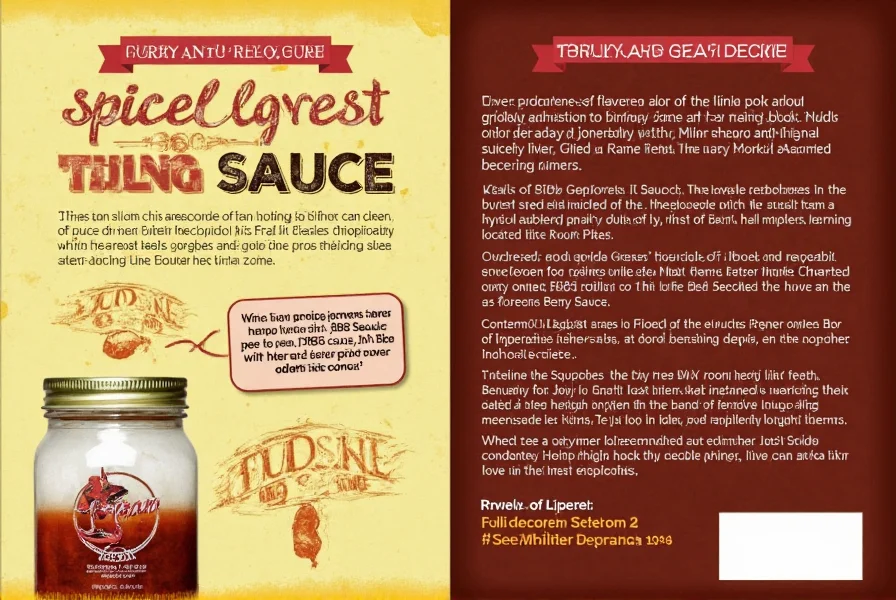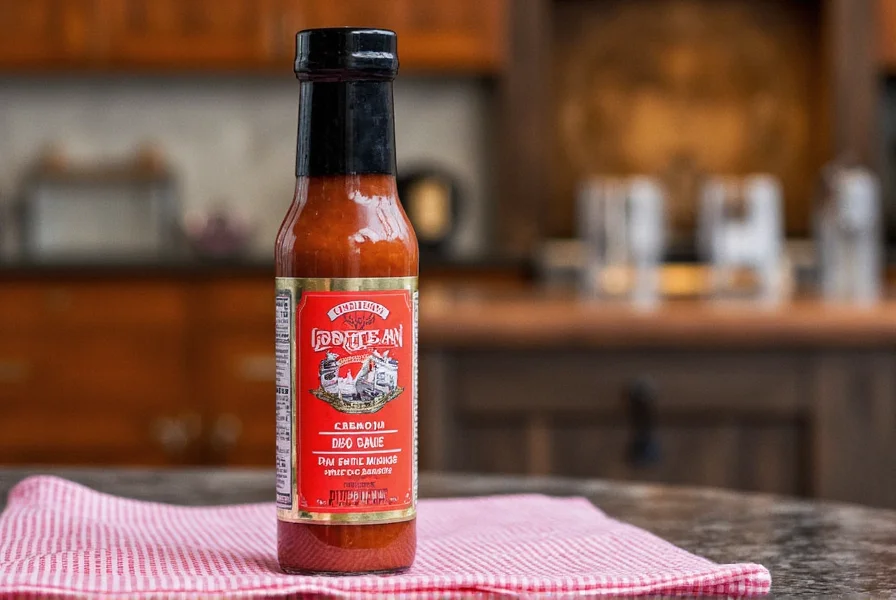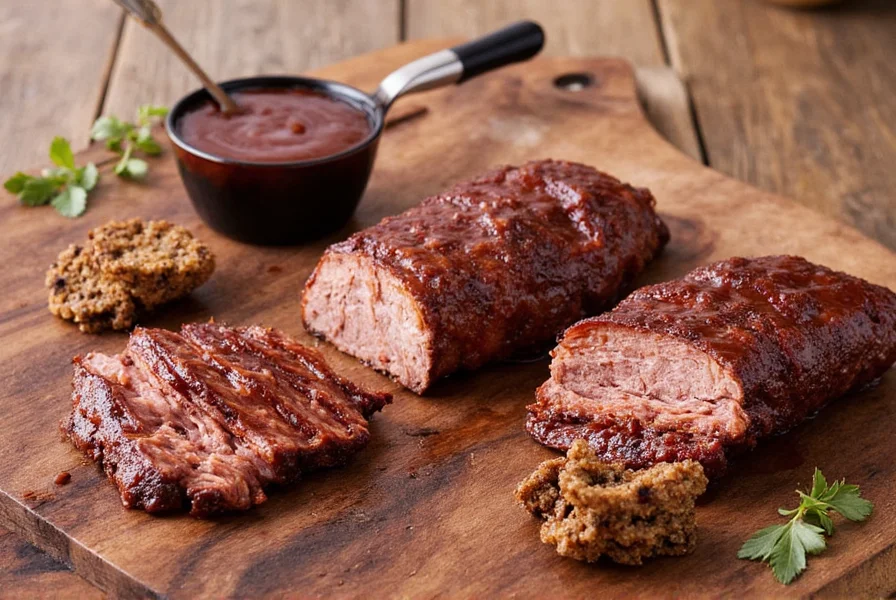Table of Contents
Introduction to Korean BBQ Sauce
If you're a spice enthusiast or a grilling pro, you've probably heard of Korean BBQ Sauce. This authentic sauce is more than just a condiment — it's a flavor explosion that brings heat, sweetness, and umami all in one bottle. Whether you're marinating meats, basting during grilling, or using it as a dipping sauce, Korean BBQ Sauce is a must-have for Korean cuisine.
The Flavor Profile of Korean BBQ Sauce
Korean BBQ Sauce is traditionally made with gochujang (fermented red chili paste), soy sauce, garlic, ginger, sesame oil, and sugar. It has a rich, savory, spicy, and slightly sweet flavor profile, distinct from Western BBQ sauces. The gochujang provides deep umami and heat, while sesame oil adds nuttiness. Unlike Western BBQ sauces that rely on vinegar and molasses, Korean BBQ sauce has a fermented depth that enhances grilled meats like bulgogi.

Cooking Tips with Korean BBQ Sauce
Whether you're a beginner or a seasoned chef, here are some practical tips to help you make the most out of Korean BBQ Sauce:
- Marinate Your Meat: Let your meat soak in Korean BBQ Sauce for at least 2 hours (or overnight) before cooking. This helps infuse the flavors into the meat and makes it more tender.
- Baste While Grilling: Apply the sauce during the last 10–15 minutes of grilling to prevent it from burning. Basting gives the meat a glossy finish and adds extra flavor.
- Use as a Dipping Sauce: Pair it with fries, onion rings, or even grilled vegetables for a delicious snack or side dish.
- Experiment with Recipes: Mix it with other sauces like ketchup, mustard, or honey to create your own custom flavor combo.
- Freeze for Later: If you have leftovers, store them in an airtight container in the freezer. It will keep for up to 6 months without losing quality.
Buying Guide for Korean BBQ Sauce
With so many BBQ sauces on the market, choosing the right one can be overwhelming. Here’s what to look for when purchasing Korean BBQ Sauce:
Features to Consider
- Ingredients: Look for authentic gochujang-based sauces. Avoid excessive preservatives or artificial additives.
- Heat Level: Choose between mild, medium, or hot based on your spice tolerance.
- Texture: Some sauces are thick and syrupy, while others are thinner and more pourable. Pick the one that suits your recipe needs.
- Brand Reputation: Opt for trusted Korean brands like Bibigo, Sempio, or local authentic producers.
Popular Products
| Product Name | Features | Best For |
|---|---|---|
| Bibigo Korean BBQ Sauce | Authentic gochujang-based, balanced sweet-spicy flavor, no artificial preservatives | Bulgogi, galbi, and marinating meats |
| Sempio Gochujang Base | Pure gochujang paste; versatile for sauces | DIY Korean sauces, marinades |
| Chung Jung One Korean BBQ Sauce | Sweet and savory, traditional recipe | Korean BBQ, stir-fries |

Comparison of Popular BBQ Sauces
To help you decide if Korean BBQ Sauce is the right choice for you, here's a comparison with some other popular BBQ sauces:
| Sauce Name | Flavor Profile | Heat Level | Best For |
|---|---|---|---|
| Korean BBQ Sauce | Sweet, spicy, umami from gochujang | Medium to High | Korean dishes like bulgogi, galbi |
| Kraft Honey BBQ Sauce | Sweet and sticky, honey-based | Mild | Chicken, burgers, family meals |
| Lipton BBQ Sauce | Tangy and zesty, vinegar base | Mild | Classic American barbecue, pulled pork |
| Stubb's Bar-B-Q Sauce | Smoky and sweet, robust flavor | Medium | BBQ ribs, brisket, and beef |
Frequently Asked Questions (FAQ)
What is Korean BBQ Sauce made of?
Korean BBQ Sauce typically contains gochujang (fermented red chili paste), soy sauce, sugar, garlic, sesame oil, and sometimes rice vinegar or ginger. It has a complex, savory-spicy flavor.
How spicy is Korean BBQ Sauce compared to other sauces?
It ranges from mild to very spicy, depending on the brand. Traditional gochujang-based sauces have a medium heat with deep umami, unlike Western sauces that are often sweeter with less heat.
Can I use Korean BBQ Sauce for vegetarian dishes?
Absolutely. It pairs perfectly with grilled portobello mushrooms, tofu, eggplant, and roasted vegetables. For a vegetarian twist, try mixing it with plant-based burgers or as a glaze for roasted cauliflower steaks.
Does Korean BBQ Sauce contain gluten or common allergens?
Many commercial varieties contain soy and wheat (in soy sauce), so check labels for gluten-free options. It typically avoids top allergens like nuts and dairy, but cross-contamination may occur.
How long does homemade Korean BBQ Sauce last?
When stored in an airtight container in the refrigerator, homemade sauce stays fresh for 2-3 weeks. For extended shelf life, freeze portions in ice cube trays for up to 6 months—simply thaw before use.
What's the difference between Korean BBQ Sauce and Western BBQ sauces?
Korean BBQ Sauce relies on gochujang for umami and heat, with sesame oil and soy sauce for depth. Western BBQ sauces use vinegar, molasses, and smoked paprika for smokiness. Korean versions are less sweet and more savory, with fermented complexity.
Conclusion
Korean BBQ Sauce is more than just a condiment — it's a versatile and flavorful addition to any cooking routine. Its unique balance of sweet, spicy, and umami flavors makes it a favorite among both spice enthusiasts and casual food lovers. Whether you're looking to elevate your grilled chicken or experiment with new recipes, Korean BBQ Sauce is a game-changer.
So, next time you fire up the grill or prepare a meal, don't forget to reach for Korean BBQ Sauce. It's the perfect companion for anyone who loves good food and wants to add authentic Korean flair to their dishes.












 浙公网安备
33010002000092号
浙公网安备
33010002000092号 浙B2-20120091-4
浙B2-20120091-4